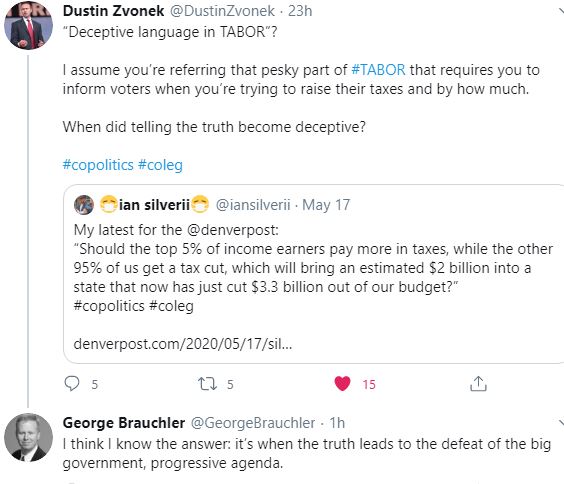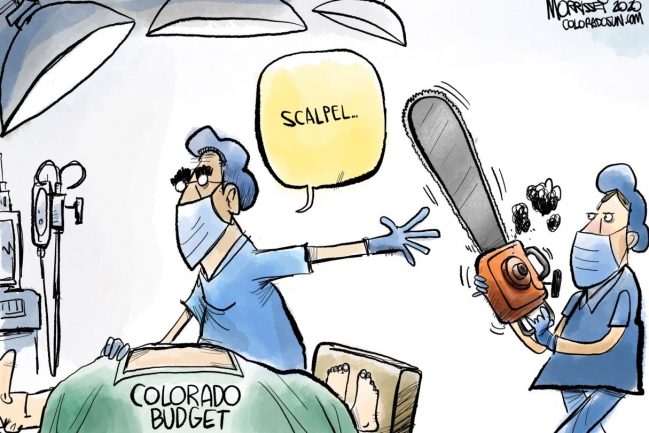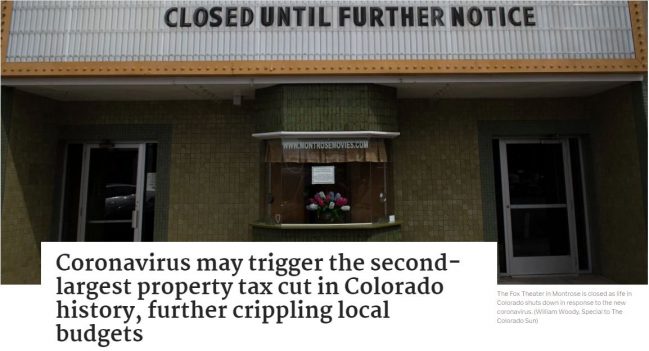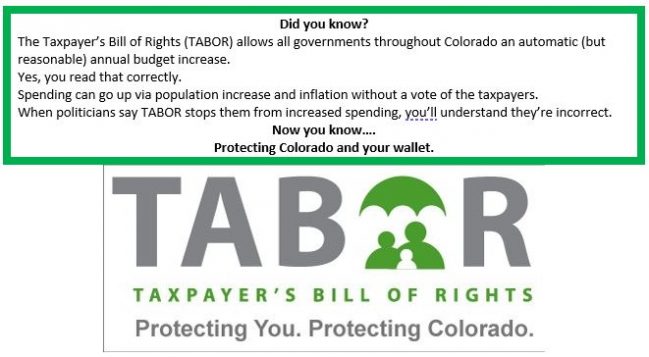Colorado voters in November emphatically endorsed tougher rules to keep our state’s politicians from violating the spirit of the Taxpayer’s Bill of Rights, or TABOR.
Now, on ly a little over two months later, those politicians are cooking up a new plan to create an end run around TABOR that would cost the state’s drivers millions.
The lack of respect for the people who elected them is breathtaking.
Proposals for what supporters are calling a “gas fee” — it’s an increase in the gas tax, don’t be fooled — would be a blatant violation of TABOR, and particularly insulting in light of the expansion of taxpayer protections approved in November and votes to reject two other road-funding proposals in 2018.
![]()
The message this sends to every Coloradan who voted to strengthen TABOR and to oppose the 2018 initiatives is that the politicians in Denver don’t seem to care what you say, no matter how often you say it. So we’ll just have to say it again, even louder.for what supporters are calling a “gas fee” — it’s an increase in the gas tax, don’t be fooled — would be a blatant violation of TABOR, and particularly insulting in light of the expansion of taxpayer protections approved in November and votes to reject two other road-funding proposals in 2018.
If the message sent by politicians is “we don’t care what you think,” our message to them has been and continues to be, “stop wasting our money, set priorities, and make better use of the money we are already sending you.”
This new fee — whose cost has yet to be determined — would be in addition to the state’s 22-cents per gallon gas tax (which is in addition to the federal 18.4 cents per gallon tax).
To continue reading this story, please click (HERE):


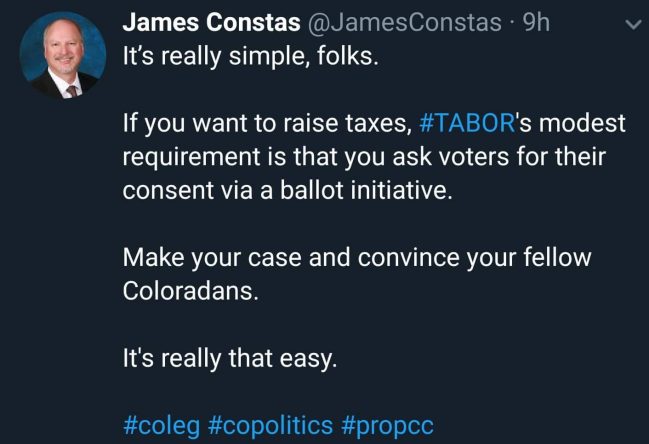
 Blog post by Christine Burtt
Blog post by Christine Burtt
